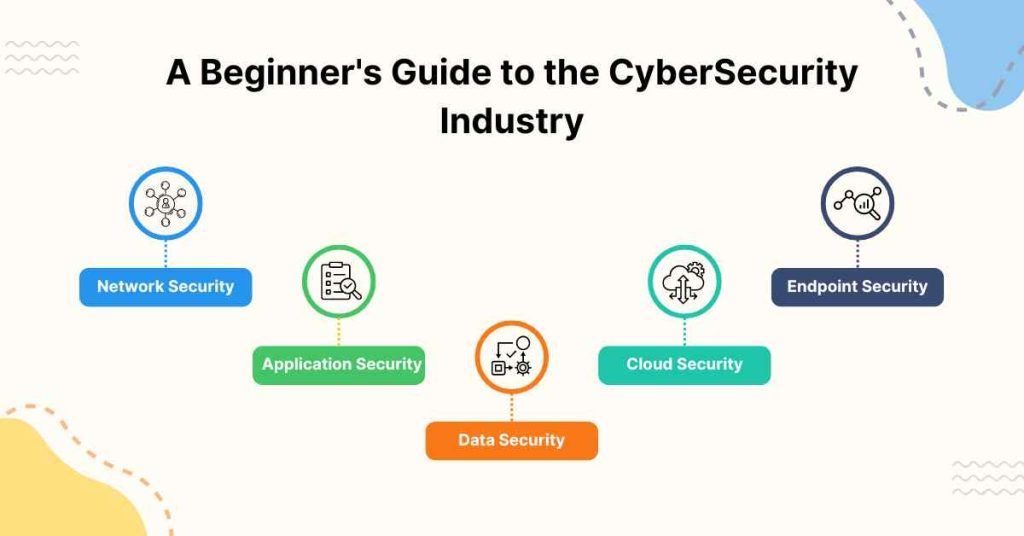

In today’s digital landscape, cybersecurity has become a critical concern for entrepreneurs and freelancers alike. As we navigate the complexities of the online world, it’s essential to stay informed about the latest threats and best practices to protect our digital assets. Let’s explore this topic in more detail with Papa’s Freezeria below, as we delve into the world of cybersecurity and uncover valuable tips to safeguard your business and personal information.
Cybersecurity is no longer a concern exclusive to large corporations. Small businesses, entrepreneurs, and freelancers are increasingly becoming targets for cybercriminals due to their often limited resources and potentially weaker security measures. The consequences of a cyber attack can be devastating, ranging from financial losses to reputational damage and legal liabilities.
As technology continues to evolve, so do the threats we face in the digital realm. Hackers and malicious actors are constantly developing new techniques to exploit vulnerabilities in our systems and networks. This ever-changing landscape makes it crucial for entrepreneurs and freelancers to stay vigilant and proactive in their approach to cybersecurity.
One of the primary reasons why small businesses are attractive targets for cybercriminals is the misconception that they are not worth attacking. However, this couldn’t be further from the truth. Small businesses often handle sensitive customer data, financial information, and intellectual property, making them valuable targets for cybercriminals looking to exploit this information for financial gain or other malicious purposes.
Moreover, small businesses and freelancers often serve as gateways to larger organizations through their business relationships and partnerships. Cybercriminals may use these smaller entities as entry points to infiltrate larger networks, making it essential for entrepreneurs to prioritize their cybersecurity measures not only for their own protection but also for the safety of their clients and partners.
Read more: Top 5 SaaS Tools Every Small Business Needs in 2025
Now that we understand the importance of cybersecurity for small businesses, let’s explore some essential tips that entrepreneurs and freelancers can implement to enhance their digital security:
One of the simplest yet most effective ways to improve your cybersecurity is by implementing strong password policies. This includes using unique, complex passwords for each of your accounts and regularly updating them. Consider using a password manager to generate and securely store strong passwords for all your accounts.
Additionally, enable two-factor authentication (2FA) wherever possible. This extra layer of security requires users to provide a second form of identification, such as a fingerprint or a code sent to their mobile device, in addition to their password. 2FA significantly reduces the risk of unauthorized access to your accounts, even if your password is compromised.
Regularly updating your software, operating systems, and applications is crucial for maintaining a strong cybersecurity posture. These updates often include security patches that address newly discovered vulnerabilities. By keeping your systems up to date, you close potential entry points for cybercriminals.
Set up automatic updates whenever possible, and make it a habit to check for updates regularly. This applies not only to your computer and mobile devices but also to any smart devices or Internet of Things (IoT) devices you may use in your business operations.
Encryption is a powerful tool in protecting your data from unauthorized access. Implement encryption for sensitive data both in transit and at rest. This means using encrypted communication channels when transmitting data over the internet and encrypting files and databases stored on your devices or in the cloud.
When working remotely or using public Wi-Fi networks, always use a reputable Virtual Private Network (VPN) service. A VPN creates a secure, encrypted tunnel for your internet traffic, making it much more difficult for cybercriminals to intercept your data or track your online activities.
While implementing technical security measures is crucial, building a culture of cybersecurity awareness is equally important. This is especially true for entrepreneurs who may have a small team or work with freelancers. Here are some strategies to foster a security-conscious environment:
Invest in regular cybersecurity training for yourself and your team. This should cover topics such as identifying phishing attempts, safe browsing practices, and the importance of data protection. Keep the training engaging and up-to-date with the latest threats and best practices.
Consider conducting simulated phishing exercises to test and improve your team’s ability to recognize and respond to potential threats. These exercises can provide valuable insights into areas that need improvement and help reinforce good security habits.
Create clear, comprehensive security policies that outline expected behaviors and procedures for handling sensitive information. These policies should cover areas such as password management, data handling, acceptable use of company devices, and incident reporting procedures.
Ensure that all team members, including freelancers and contractors, are familiar with and adhere to these policies. Regularly review and update your security policies to address new threats and technologies as they emerge.
Encourage open dialogue about cybersecurity within your organization. Create an environment where team members feel comfortable reporting potential security incidents or concerns without fear of reprisal. This open communication can help identify and address security issues more quickly and effectively.
Consider appointing a security champion within your team who can serve as a point of contact for security-related questions and concerns. This person can help disseminate security information and best practices throughout the organization.
As entrepreneurs and freelancers, we can take advantage of various technological solutions to bolster our cybersecurity defenses. Here are some key technologies and practices to consider:
Invest in reputable antivirus and anti-malware software for all your devices. These tools can help detect and prevent various types of malicious software, including viruses, trojans, and ransomware. Ensure that your chosen solution provides real-time protection and regular updates to address new threats.
In addition to traditional antivirus software, consider implementing advanced endpoint protection solutions that use artificial intelligence and machine learning to detect and respond to sophisticated threats more effectively.
Cloud-based security services can provide small businesses and freelancers with enterprise-grade security capabilities at a fraction of the cost. These services often include features such as email filtering, web protection, and data loss prevention.
Many cloud providers also offer built-in security features for their services. Familiarize yourself with these features and ensure they are properly configured to maximize your security posture when using cloud-based applications and storage.
Network segmentation involves dividing your network into smaller, isolated segments. This can help contain potential security breaches and limit the spread of malware within your network. For small businesses, this could mean separating guest Wi-Fi from your main business network or isolating systems that handle sensitive data.
Ensure that you have a properly configured firewall in place to monitor and control incoming and outgoing network traffic. Many modern routers come with built-in firewall capabilities, but you may want to consider a dedicated hardware or software firewall solution for enhanced protection.
Read more: How to Automate Your Business Using Technology
Despite our best efforts, security incidents can still occur. Having a well-defined incident response plan in place can help minimize the impact of a security breach and ensure a swift, effective response. Here’s how to develop and maintain an incident response plan:
Determine who will be involved in responding to a security incident. This may include IT personnel, legal counsel, public relations representatives, and key decision-makers within your organization. Clearly define the roles and responsibilities of each stakeholder in the event of a security breach.
Establish a chain of command for incident response, ensuring that everyone knows who to report to and who has the authority to make critical decisions during a crisis.